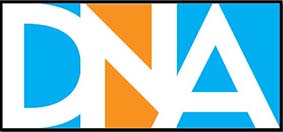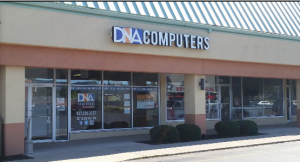In our line of work at DNA Computers, many of our clients seek us out because of the dreaded computer virus. While unfortunately it is true that there are threats lurking about on the internet, we have noticed there is some confusion around what a computer virus is -and isn’t. It’s understandable there is some confusion around this topic, for as quickly as the IT industry moves as a whole, the security sector of the IT industry moves even faster. We will talk about viruses, malware, phishing, and what you can do to keep them off your computer.
Computer Virus
From grade schoolers to grandparents, and nearly everyone in between, have heard of a computer virus. This infamous computing gremlin has been around in popular culture at least since the dawn of the internet. However, in 2019, what many term a “virus” is in fact what is known as “malware” (more on that, soon). So what is a virus, exactly? A virus is a computer program with malicious intent, operating with the goal of changing the way the infected computer operates. Critically, a virus inhabits a specific file on a computer, and executes when the file is executed (Symantec). The effects of a virus may or may not be obvious; it will depend on the purpose of the code and the motivations of the author.
Malware
“Malicious Software” aka malware is one of the most prolific threats most users will encounter on the internet today. Much like a computer virus, malware enters a system maliciously with the intention of disrupting its normal operations. However, unlike a computer virus whose intentions may be opaque, malware’s express goal is to make money off of you. Malware wants something from you; to get you to interact with it, it may delete or encrypt files, as well as making normal functions next to impossible (Malwarebytes). If you’ve ever experienced a program that just does not go away, with a name like “PC Speed Tune Pro 2019”, that’s malware.
Phishing
As Malwarebytes puts it so succinctly, phishing is “the crime of deceiving people into sharing sensitive information like passwords and credit card numbers”. Phishing is so named because the method employed to deceive is similar to actual fishing. Nearly a cliché by now, the stereotypical “Nigerian Prince” emails are a classic example of this. In this classic example, email addresses all over the world receive a plea from someone claiming to be a Nigerian Prince who has fallen on hard times, and just needs your help (and money) to secure what’s rightfully his. Naturally, the prince promises to compensate you handsomely once he has secured his funds, but of course this never materializes. While 99.99% of people wouldn’t give this a second though, phishers are looking for the big “score”. They only need a few people to fall for the ploy, but they have to cast a very, very wide “net” in order to find any success, hence the name.
What You Can Do
It might seem like it’s nearly impossible to go online without encountering malicious software. We want you to know that simply isn’t true. Like my mother always said “an ounce of prevention is worth a pound of cure”. First and foremost, read before you click. The fine print is key, and where a lot of malware will piggyback onto your system. Next, we highly recommend installing an adblocker into your web browser. This will keep malicious and annoying popups online to a minimum (where a lot of malicious software will enter). Next, be sure to have an antivirus installed and running on your computer. You can head to avtest.org to see the current rankings of antivirus software. In addition to the aforementioned steps, keeping phishers at bay can be made a lot easier by switch to an email service with advanced spam filtering like Gmail. However, if you’re currently fighting a virus on your machine, or you’re a victim of a phishing attack, the friendly experts at DNA Computers have your virus removal covered. We can protect your data and get you back in business as soon as possible.
By: Winston Cronenwett
Sources:
- Symantec Corporation. “What Is A Computer Virus?” What Is A Computer Virus?, us.norton.com/internetsecurity-malware-what-is-a-computer-virus.html.
- Malwarebytes. “Malware Definition – What Is It and How to Remove It.” Malwarebytes, www.malwarebytes.com/malware/.
- Malwarebytes. “Phishing – Prevent Phishing Emails, Scams, and Attacks.” Malwarebytes, www.malwarebytes.com/phishing/.




